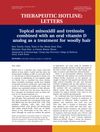TLDR Metformin effectively improves metabolic symptoms in women with PCOS, while alfacalcidiol does not have a significant impact.
In the 2017 study involving 39 women with polycystic ovary syndrome (PCOS), the effects of alfacalcidiol, metformin, and their combination on metabolic disturbances were evaluated over 6 months. The study found that metformin alone significantly reduced body weight, BMI, waist circumference, total body fat, and serum glucose levels. The combination of metformin and alfacalcidiol led to a significant reduction in waist circumference but did not significantly affect other metabolic parameters. Alfacalcidiol alone did not result in significant changes, except for a slight, non-significant increase in HDL cholesterol. The study concluded that vitamin D supplementation by itself does not significantly impact metabolic parameters in women with PCOS and that metformin is the most effective treatment for metabolic changes associated with PCOS.
 16 citations
,
March 2015 in “Wiener Klinische Wochenschrift”
16 citations
,
March 2015 in “Wiener Klinische Wochenschrift” Vitamin D deficiency is common in women with PCOS and linked to some metabolic problems, but not the main cause of their metabolic issues.
 1744 citations
,
August 2006 in “The Journal of Clinical Endocrinology and Metabolism”
1744 citations
,
August 2006 in “The Journal of Clinical Endocrinology and Metabolism” Polycystic Ovary Syndrome should be seen mainly as a condition of excess male hormones, with a focus on this in its definition.
 March 2024 in “International journal of life-sciences scientific research/SSR Institute of International Journal of Life Sciences”
March 2024 in “International journal of life-sciences scientific research/SSR Institute of International Journal of Life Sciences” PCOS has many symptoms, with high androgen levels being the most common.
 3 citations
,
February 2016 in “Endocrinology and Metabolism Clinics of North America”
3 citations
,
February 2016 in “Endocrinology and Metabolism Clinics of North America” Manage women's cholesterol with diet, exercise, and careful treatment choices, especially during pregnancy, PCOS, and menopause.
 14 citations
,
October 2016 in “Physiological Research”
14 citations
,
October 2016 in “Physiological Research” Alfacalcidiol and metformin together lowered testosterone in women with PCOS, but did not significantly improve acne, hair growth, or pregnancy rates.
 4 citations
,
January 2017 in “Journal of pediatric endocrinology & metabolism/Journal of pediatric endocrinology and metabolism”
4 citations
,
January 2017 in “Journal of pediatric endocrinology & metabolism/Journal of pediatric endocrinology and metabolism” Two different mutations in the vitamin D receptor gene cause different symptoms and responses to treatment in Lebanese patients with hereditary rickets.
 3 citations
,
February 2016 in “Dermatologic Therapy”
3 citations
,
February 2016 in “Dermatologic Therapy” Using minoxidil and tretinoin on the skin, along with oral vitamin D, improved hair thickness and density in two girls with woolly hair.







